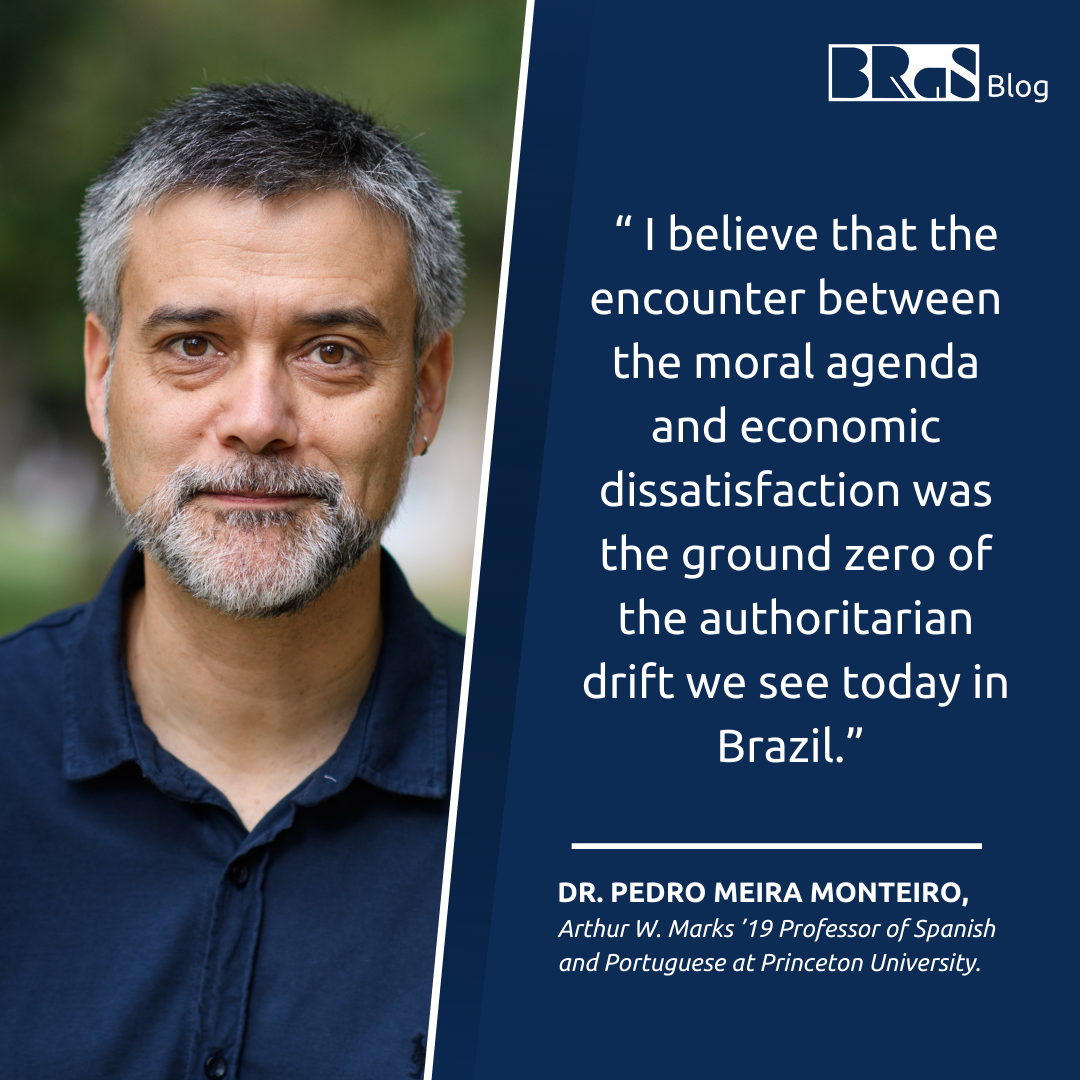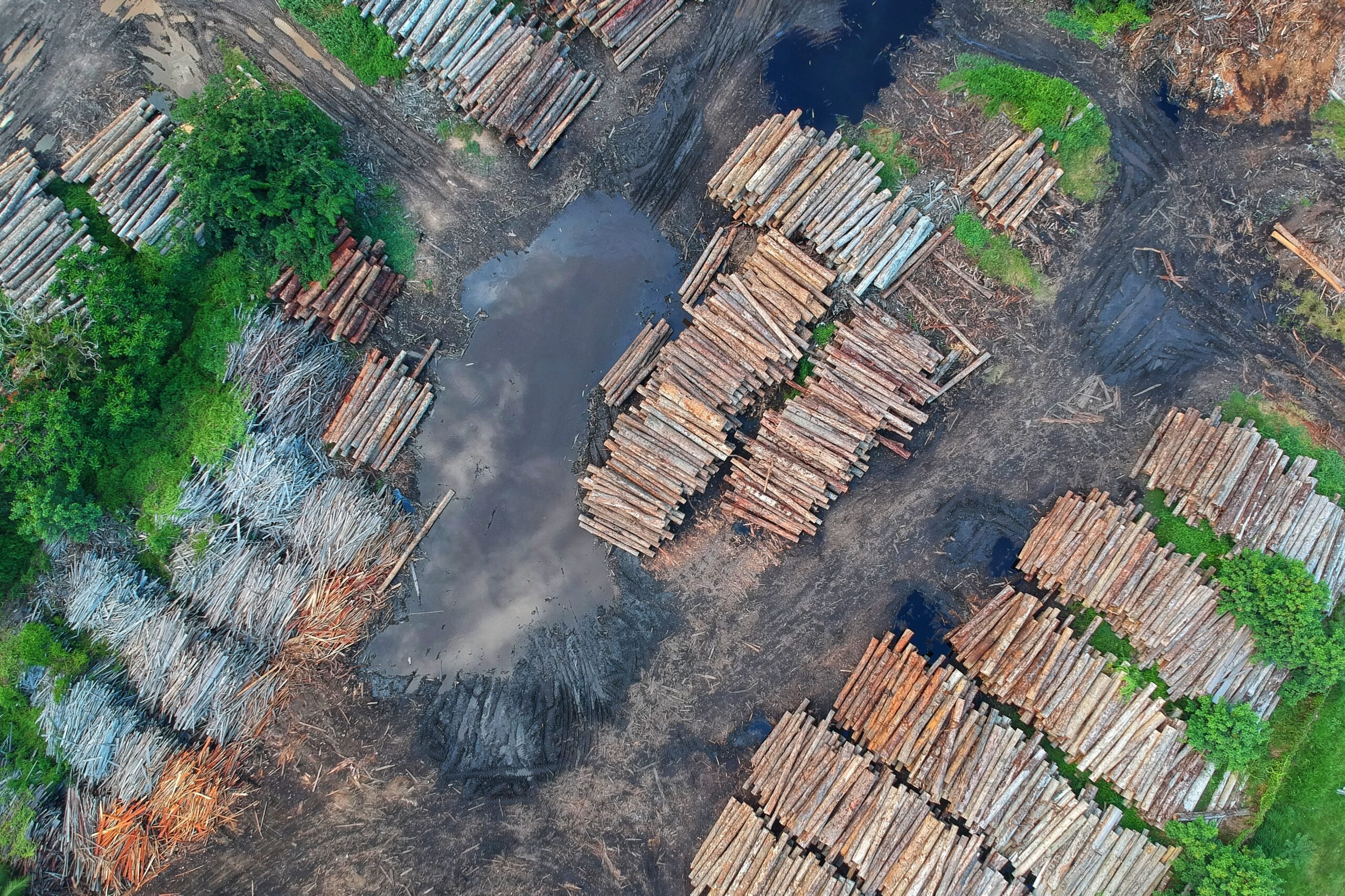by Isabela Battistello Espindola, Ph.D. candidate in Human Geography at the University of São Paulo (USP)*
Edited and reviewed by Giovanna Imbernon and Anna Paula Bennech
The new stance adopted by the United States (USA) concerning the climate agenda has been very representative. In addition to announcing that the country would return to the Paris Agreement, Joe Biden, the current president of the United States, invited on March 26, 2021, about 40 world leaders to participate in a climate summit. From South America, only the presidents of Argentina (Alberto Fernandez), Brazil (Jair Bolsonaro), Chile (Sebastián Piñera) and Colombia (Iván Duque Márquez) were invited. It is interesting to note that the guest list includes all BRICS member countries (South Africa, Brazil, China, India, and Russia) and the G7 (Germany, Canada, United States, France, Italy, Japan, and the United Kingdom).
Besides the countries responsible for producing around 80% of global greenhouse gas (GHG) emissions, Biden also invited countries with strong climate leadership, those most vulnerable to climate impacts, and those following innovative paths to a net economy zero. One of Biden’s biggest concerns is to involve the leading global economies to face the climate crisis. Hence, the G7 and the BRICS countries perfectly fit because they are configured as the most developed nations and with the most advanced economies. Biden considers that these nations have a primary role in galvanizing the necessary and stronger efforts to tackle climate change, mainly to achieve the vital goal of limiting warming to 1.5 degrees Celsius. USA expectation is that the Summit will provide the necessary means to expand the nation’s commitment signed in the Paris Agreement in 2015.
The Summit was held virtually from April 22 to 23 with live broadcasting. Additionally to the presence of the 40 invited countries, the Climate Summit included business and civil society leaders, such as Pope Francis and the Sinéia do Vale, leader of the Wapichana indigenous community in the state of Roraima, Brazil. Sinéia is a member of the Indigenous Climate Change Committee (APIB) and has been following climate discussions at the international level of the United Nations Framework Convention on Climate Change (UNFCCC) for more than ten years. During her speech, Sinéia stated that the participation of indigenous peoples and traditional communities is essential in environmental and climate discussions. For the Brazilian activist, the traditional knowledge of indigenous peoples offers essential contributions to Science, showing different perspectives for sustainable and environmental management. At the same time, Sinéia stressed the need to preserve forests and the demarcation of land issues.
One of the Summit’s novelties was the announcement of the Global Climate Ambition Initiative by the US government. The initiative mentions that the United States will support partner countries in establishing net-zero strategies, implementing their nationally determined contributions and national adaptation strategies, as well as reporting their progress under the Paris Agreement. The net-zero concept refers to adopting actions, approaches, and technologies that promote sustainability via self-sustainability. In the case of net-zero emissions, it is argued that the remaining human-made GHG emissions are balanced by the removal of GHG from the atmosphere (via, for example, the carbon removal process).
Regarding the participation of Brazilian President Jair Bolsonaro in the Summit, it took place on April 22, 2021. During his speech, the president of Brazil pledged to double resources to curb deforestation in the country, extinguishing illegal deforestation by 2030. Bolsonaro asked Biden’s government to provide $1 billion to pay for conservation efforts in the Amazon rainforest. This statement mostly follows the unified position that Brazil has with India, China, and South Africa (other BRICS member countries), regarding their defense of responsibilities and the need for financing by Climate Rich-Countries. Also, he stated that the new Brazilian goal is to achieve climate neutrality by 2050. This neutrality would occur as the country started to drastically reduce its greenhouse gas (GHG) emissions and, at the same time, by adopting measures to compensate for the remaining emissions via environmental measures. In the USA case, Biden also announced that expectations for achieving climate neutrality had been brought forward to 2050.
Bolsonaro’s changing rhetoric might be related to international pressure to end deforestation and increase Brazil’s commitment to tackling climate change. Biden’s government has been pressing Brazil to realign itself with the international environmental agenda, as the environment has been central for diplomatic and bilateral negotiations between Brazil and the USA in recent weeks. Despite President Bolsonaro’s assurance that Brazil would be committing itself to the USA call to establish more ambitious commitments to fight the climate crisis, organizations linked to the environmental cause and international leaders showed mistrust and skepticism with the proposal presented. Greta Thunberg, an environmental activist, recently openly criticized Bolsonaro during a World Health Organization press conference. For Thunberg, Bolsonaro failed in his role as president, not being able to respond to the challenges posed by the pandemic and the climate change crisis. According to the young activist, Bolsonaro has a huge responsibility and must assume the consequences of his actions.
These suspicions and mistrust have countless reasons. Under Bolsonaro’s government, Brazil has seen the worst management, protection, and conservation of its natural resources and ecosystem. From massive spikes in deforestation and fires spreading over Pantanal and other Brazilian biomes to targeted attacks on civil society and environmental defenders. Deforestation within the Brazilian section of the Amazon increased considerably under Bolsonaro’s government, reaching a destroyed area equivalent to 14 times the size of New York City, a peak of 12 years in 2020. These are just some examples of the environmental situation in Brazil.
The situation in Brazil is critical, but that does not mean that the population is complacent with the government’s attitudes. Engajamundo, a Brazilian youth network, and the Fridays for Future – Brazil movement filed for a popular lawsuit against Minister Ricardo Salles, former Chancellor Ernesto Araújo, and the Federal Government for, in December 2020, carrying out an accounting maneuver that hindered the fight against deforestation and the reduction of greenhouse gas emissions in Brazil. The new Nationally Determined Contribution (NDC) targets mention that Brazil aims to reduce GHC emissions by 37% by 2025 and up to 43% by 2030. However, Brazil’s NDC does not change the percentage mitigation pledge but drastically changes the baseline. Brazil pledges to emit around 400 million tons more of CO2 by 2030, equivalent to what they indicated in 2015. By moving the baseline numbers, Brazil can appear to make larger emission reductions than it does, all while Amazon continues to burn. It is a carbon trick maneuver, considered an “environmental pedalada” by Engajamundo and Fridays for Future.
Also, in 2020, Brazilian political parties (PSB, PDT, Rede, PV, PT, PSOL, and PCdoB) and NGOs (ISA-Instituto Socioambiental, Apib-Articulation of Indigenous Peoples of Brazil, National Council of Extractive Populations, Climate Observatory, Greenpeace Brasil, Conectas, Instituto Alana, Associação de Jovens Engajamundo, Artigo 19, and Alternative Civil Association Terrazul) filed for a lawsuit in the Supreme Federal Court to stop the devastation in the Amazon, forcing the federal government to reinforce environmental policies and vigorously fight climate change.
Even with this USA pressure for Brazil to show leadership on the international environmental agenda, the country continues to fail with its mission. The position adopted by Bolsonaro does not match his speech at the 2021 Climate Summit that the country would be strengthening environmental agencies and doubling the financial resources dedicated to environmental inspection actions. Consequently, the country’s image abroad remains deeply compromised, not least because of the inefficiency of the management of the COVID-19 pandemic but also the economic situation and the increase in deforestation, especially in the Amazon.
References
A Tarde (Uol). “Greta Thunberg Critica Bolsonaro: ‘Tem Uma Responsabilidade Enorme,’” April 19, 2021. https://atarde.uol.com.br/brasil/noticias/2165361-greta-thunberg-critica-bolsonaro-tem-uma-responsabilidade-enorme.
Briefing room. “President Biden Invites 40 World Leaders to Leaders Summit on Climate.” The White House, March 26, 2021. https://www.whitehouse.gov/briefing-room/statements-releases/2021/03/26/president-biden-invites-40-world-leaders-to-leaders-summit-on-climate/.
Levin, Kelly, and Chantal Davis. “What Does ‘Net-Zero Emissions’ Mean? 6 Common Questions, Answered.” World Resources Institute, September 17, 2019. https://www.wri.org/insights/what-does-net-zero-emissions-mean-6-common-questions-answered.
Reuters, Jake Spring, and Lisandra Paraguassu. “Brazil’s Bolsonaro, under U.S. Pressure, Vows Climate Neutrality by 2050.” Reuters, April 23, 2021. https://www.reuters.com/business/environment/bolsonaro-says-brazil-will-reach-climate-neutrality-by-2050-2021-04-22/.
Sengupta, Somini, and Lisa Friedman. “Biden’s Intelligence Director Vows to Put Climate at ‘Center’ of Foreign Policy.” The New York Times, May 4, 2021. https://www.nytimes.com/live/2021/04/22/us/biden-earth-day-climate-summit.
Vick, Mariana. “A Ação Judicial Que Tenta Frear a Devastação Na Amazônia.” Nexo, November 23, 2020. https://www.nexojornal.com.br/expresso/2020/11/22/A-a%C3%A7%C3%A3o-judicial-que-tenta-frear-a-devasta%C3%A7%C3%A3o-na-Amaz%C3%B4nia.
The author Isabela Battistello Espíndola thanks the São Paulo Research Foundation (Fapesp), which financed the research project related to Process no. 2017/17997-9. The opinions, hypotheses, and conclusions or recommendations expressed in this material are the responsibility of the author(s) and do not necessarily reflect the vision of Fapesp.






